Are you an avid rummy player looking to conquer the battlefield of live tournaments? Or perhaps you’re a newcomer, eager to challenge the seasoned veterans and make your mark in the world of online rummy?
Either way, equipping yourself with an arsenal of winning strategies is crucial. As you embark on this exciting journey, it’s essential to have a deep understanding of game rules and tournament variations.
But that’s just the beginning – mastering techniques such as optimizing your starting hands and planning discards strategically could be your ticket to victory.
It might seem daunting at first glance, but don’t worry – this comprehensive guide will provide valuable insights into these areas and more, paving your path towards becoming a live rummy champion.
Table of Contents
- Understanding Game Rules and Variations
- Strategies for Starting Hands and Discards
- Enhancing Observation Skills
- Time Management and Adaptability
- Mental Preparation Techniques
- Conclusion
Understanding Game Rules and Variations
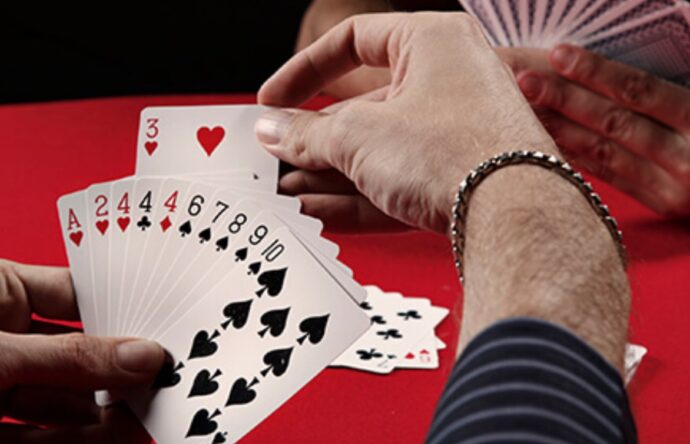
Before you dive headfirst into the exciting world of online rummy game, it’s crucial that you’ve got a firm grasp on the game’s rules and its many variations.
Let’s start with your Rummy Basics: in essence, this is a card game where 2 to 6 players shuffle together two decks of cards and compete to arrange their hands into valid sequences or sets before anyone else.
The key here is to form at least one pure sequence – that’s three or more consecutive cards from the same suit—without relying on Joker or wild cards – otherwise, even if all your other groups are perfect, victory will still elude you.
You should also keep an eye out for impure sequences; they’re not as desirable as pure ones but can be completed using Joker or Wild Cards when needed.
Next up: understanding the scoring system. In rummy, every card has a point value attached; face cards (King, Queen, and Jack) carry ten points, while number cards hold their numerical values.
Meanwhile, both Jokers and Wild Cards, which can take on any value you assign them during gameplay, don’t add anything to your score tally; instead, they help reduce your overall total by substituting higher-value cards in your sequences or sets.
This gives them strategic importance beyond just filling gaps in your potential melds – having fewer points than others could mean the difference between winning and losing!
Lastly, make sure you’re familiar with the different standard variations of rummy and any special rules certain versions might have.
For instance, some variants may allow ‘laying off’—adding onto existing melds after going “Rummy”, while others might introduce unique play elements such as discard piles being open or closed. Each variation demands its own set of strategies and tactics, so it’s crucial to study them carefully.
Remember: a little preparation goes a long way and could give you the upper hand in these live tournaments.
Stay adaptable, keep learning new strategies, and soon enough, online rummy will be your playground!
Strategies for Starting Hands and Discards
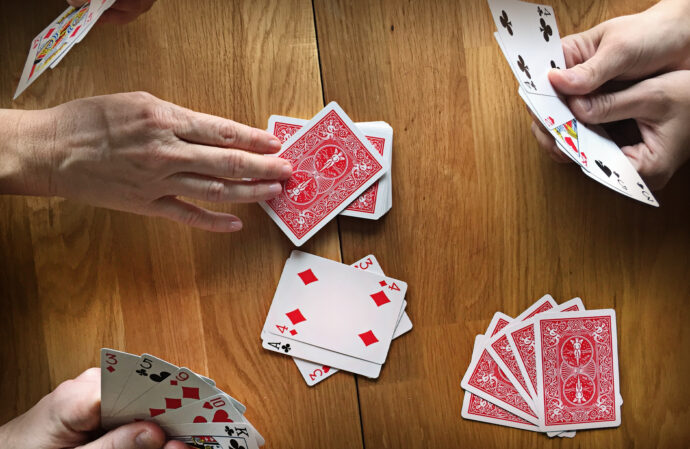
Let’s dive into the art of mastering your starting hand and strategic discards, a crucial skill that could be your ticket to victory in online rummy games.
To begin with, you need to conduct proper Hand Analysis. This involves closely inspecting your cards at the start of each game, identifying potential sets or sequences, and planning your moves accordingly.
Remember, don’t just focus on what’s currently in your hand; keep an eye on the discard pile and draw deck as well. You might find cards there that can help complete a set or sequence.
Moving forward from hand analysis comes another vital aspect – Discard Tactics. It’s not only about choosing which card to let go of but also when to make such a move.
Discarding high-value cards early will reduce the risk of penalty points if you lose while confusing opponents by occasionally throwing out low-value cards they may need for their melds.
Another critical point is understanding how discarding certain cards can influence other players’ actions – remember, every discard sends a message so make sure it’s one designed to mislead rather than guide.
Your opening moves, tailoring strategies according to changing situations, and making optimal discards are all part of this dynamic process too. For example, opening moves should aim towards forming pure sequences quickly since these offer protection against sudden declarations by opponents.
As for tailoring strategies, always be adaptable! If circumstances change (like getting unexpected draws), adjust your strategy instead of rigidly sticking to one plan.
Lastly, optimal discards involve letting go of those cards that least benefit your game while potentially hindering others’. So brace up, put these techniques into practice, and ace those live rummy tournaments!
Enhancing Observation Skills

Now, sharpening your observation skills is the next critical step in conquering those live rummy tournaments.
These skills are not only about keenly observing what’s happening on the table but also extend to spotting patterns, reading opponents, and even picking up Non-Verbal cues.
The secret lies in transforming these observations into strategic plays that can give you an edge over others.
Let’s delve a little deeper:
- Spotting patterns: This involves identifying recurring sequences or combinations among discarded cards or melds made by opponents. If you notice any such pattern, it could provide valuable insight into your opponent’s game plan.
- Reading Opponents: Pay close attention to each player’s actions at varied game stages – their discards, picks from the deck or pile, reactions to other players’ moves, etc.—which might reveal their strengths and weaknesses.
- Visual Memory Improvement: Practice remembering card sequences from previous rounds as it helps predict possible outcomes of current and future games.
- Non-verbal cues: While playing online restricts physical tells, there may still be subtle behavioral indicators like reaction time or chat responses that can hint towards a player’s hand strength.
- Attention Training: Strengthen your focus to avoid missing out on important details during gameplay.
The art of reading opponents requires practice, but once mastered, it allows for more calculated decisions and better control over the game flow.
Also, remember that maintaining an element of unpredictability yourself keeps opponents guessing while enhancing your chances of winning.
In conclusion, developing strong observational abilities will help turn around many games in your favor – both expectedly and unexpectedly!
So don’t let this crucial aspect slide; instead, invest time honing this skill set alongside other strategies like optimizing starting hands and planning discards strategically. Remember that being observant is not just about watching closely—it’s about interpreting accurately too!
Time Management and Adaptability
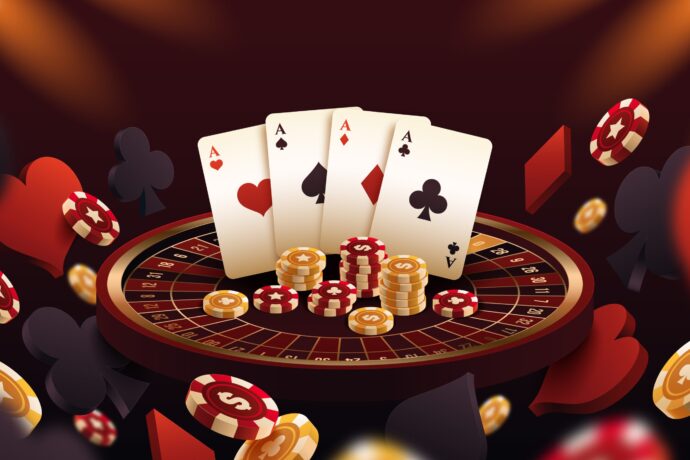
You’re a busy professional, right? So how do you squeeze in the thrill of online card games like rummy without letting it disrupt your daily grind? The answer lies in effective time management and adaptability.
Allocate specific time slots for playing rummy so that it doesn’t spill over into your work hours or personal commitments.
Even if you have just 15 minutes to spare during lunch break, make use of mobile apps offered by reliable platforms such as Taj Rummy to play quick sessions on the go.
Set achievable objectives and clear boundaries; decide beforehand whether you’ll be playing point rummy or pool rummy based on the time available.
In live tournaments, clock awareness is crucial not only for managing your own game but also for anticipating opponents’ moves. It’s all about making decisive actions within the allotted timeframe while keeping an eye out for rapidly changing situations at the table.
This calls for adopting an adaptive thinking approach – being open to new strategies and ready to discard what isn’t working.
This calls for adopting an adaptive thinking approach – being open to new strategies and ready to discard what isn’t working.
Flexible Planning:
- Allocate Specific Time Slots
- Choose Suitable Game Variants
- Use Mobile Apps For Convenience
- Set Clear Boundaries And Goals
- Don’t Let Gaming Spill Over Work Hours Or Personal Commitments
Decisive Actions:
- Make Quick Decisions
- Keep Eye On Clock
- Anticipate Opponents’ Moves
- Utilize Allotted Timeframe Effectively
- Be Firm With Your Choices
Rapid Adjustments:
- Adapt To Changing Situations
- Alter Strategy If Needed
- Stay Updated With the latest strategies.
- Improve Speed Through Regular Practice
- Maintain Calm Under Pressure
Lastly, remember that success does not come overnight; regular practice will help hone skills and improve speed.
Keep up with the latest strategies through gaming forums and expert blogs, which can provide valuable insight into advanced tactics such as optimal starting hands strategy or strategic discarding.
By incorporating these tips into your game, you’ll be well-equipped to win live rummy tournaments without letting them take over your schedule.
Remember, adaptive thinking and effective time management are the keys to balancing work and play while enjoying a successful gaming experience.
Mental Preparation Techniques
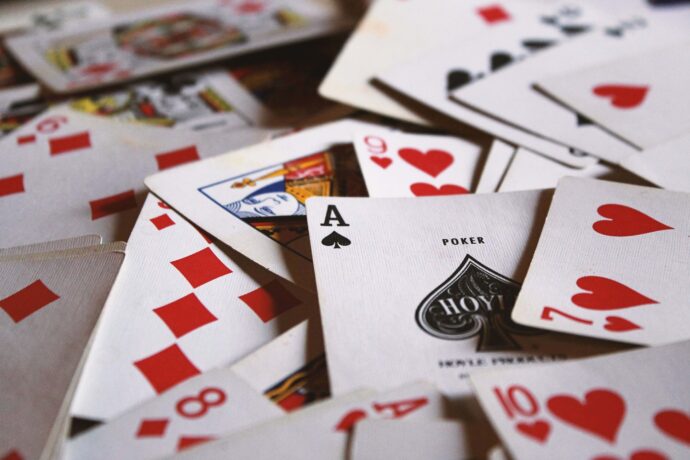
In order to maintain a calm demeanor and a clear mind during intense bluffing games, it’s essential to fine-tune your mental preparation techniques.
One of these is emotional control. To keep your cool under pressure, you need to have an iron grip over your emotions.
This prevents opponents from reading your expressions or body language for clues about your hand. You can achieve emotional control by practicing meditation or other mindfulness exercises regularly.
Another technique that works wonders in live rummy tournaments is stress management. As the game progresses, stress levels shoot up, but if you’ve mastered this technique, not only will you be able to handle the increasing pressure with ease but also make more calculated decisions.
Confidence building comes next on our list of mental preparation techniques. A high level of self-assuredness can intimidate opponents, making them second-guess their strategies, which could work in your favor.
Confidence building isn’t just about appearing confident; it’s about feeling genuinely secure in every move you make in the game.
Additionally, visualization exercises are highly beneficial as they allow players to mentally rehearse different scenarios and outcomes before the actual tournament begins.
Lastly, cognitive flexibility ties all these techniques together by providing the ability to adapt and change strategy based on real-time developments in-game.
Being cognitively flexible means being open to new ideas and changing tactics when necessary – a trait vital for success in any live tournament scenario.
Conclusion
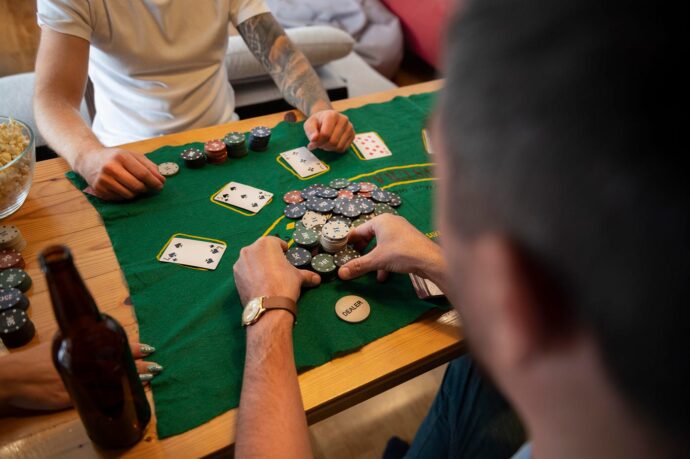
Remember, success in rummy – or any competitive game, for that matter – isn’t just about skill and strategy.
It’s also about having the right mindset and being mentally prepared to handle whatever comes your way. So, start training your mind along with your bluffing skills today!















